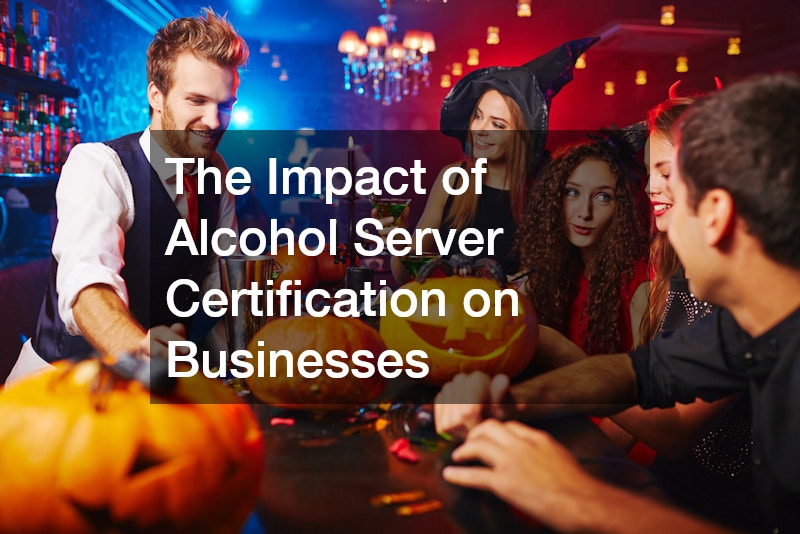
Alcohol server certification is an essential credential for individuals who serve alcoholic beverages. This certification ensures that servers are knowledgeable about legal responsibilities related to alcohol service. With this training, they can effectively manage challenging situations that may arise in a hospitality setting.
In many regions, alcohol server certification is mandatory. The certification typically covers topics such as checking IDs, recognizing signs of intoxication, and understanding liability issues.
These components are crucial in preventing the overconsumption of alcohol and ensuring safer environments both within and outside the establishment.
Through this certification, servers gain confidence in their decision-making processes. They learn about the importance of refusing service to underage individuals and visibly intoxicated patrons. This not only helps maintain the establishment’s reputation but also reduces the risk of accidents or legal issues arising from improper service.
The Benefits of Alcohol Server Certification
One of the primary benefits of alcohol server certification is enhanced public safety. By properly educating servers, alcohol-related incidents, such as drunk driving and alcohol poisoning, can be minimized. This makes communities safer for everyone and encourages responsible drinking habits.
Establishments benefit from having certified staff as it can lead to a reduction in liability insurance costs. Insurers often provide incentives to businesses that demonstrate proactive measures in preventing alcohol-related incidents. As a result, server certification can be both a financial and a safety-related investment for businesses.
Moreover, employees who hold alcohol server certification are often seen as more professional and responsible. This can result in better job prospects and more opportunities for advancement in the hospitality industry. Certified servers can attract more customers, as patrons feel assured knowing that their safety is a priority.
The Training Process for Alcohol Server Certification
The training process for alcohol server certification typically involves a combination of classroom learning and practical assessments. This comprehensive approach ensures that servers not only learn theoretical aspects but also how to apply them in real-world situations. Topics covered can include legal regulations, customer service skills, and conflict resolution strategies.
Training programs are frequently updated to reflect changes in legislation and industry best practices. This ongoing education helps servers stay current with new laws and emerging trends. By remaining informed, certified servers can better tackle challenges they may face during their shifts.
Completing the certification process often requires passing a final exam. This exam is meant to evaluate the server’s understanding of key concepts and their ability to apply them effectively. Successfully obtaining certification demonstrates a commitment to upholding responsible serving practices.
The Impact of Alcohol Server Certification on Businesses
Businesses that ensure their staff are certified often enjoy a competitive edge over establishments that do not. Customers are more likely to frequent locations where they feel assured of responsible alcohol service. This can lead to increased patronage and loyalty, thereby boosting revenue.
Implementing alcohol server certification as a standard also enhances a business’s reputation. Establishments are often recognized for their commitment to safety, which can attract positive attention and goodwill from the community. This approach can be a pivotal element in long-term business success.
Furthermore, by minimizing the risk of alcohol-related incidents, businesses can avoid costly legal battles and fines. The investment in certified training is often less expensive than potential legal fees. Thus, alcohol server certification can be viewed as a proactive risk management strategy.
Conclusion
In summary, alcohol server certification is a crucial element for ensuring the safety and professionalism of alcohol-serving establishments. It benefits not only the servers and businesses but also the community at large by fostering a culture of responsible alcohol consumption. As such, it is vital for the hospitality industry to prioritize and continually support alcohol server certification.
The training equips servers with essential knowledge and skills needed to perform their roles effectively. By adhering to the guidelines learned through certification, servers play a key role in mitigating risks associated with alcohol consumption. They act as the first line of defense in preventing underage drinking and managing intoxicated patrons.
As the hospitality industry continues to grow, the importance of alcohol server certification will remain undeniable. This certification not only helps protect public health but also preserves the well-being of the establishments that implement it. Investing in comprehensive alcohol server certification should be viewed as both a necessary and advantageous step forward for any business serving alcohol.
.
